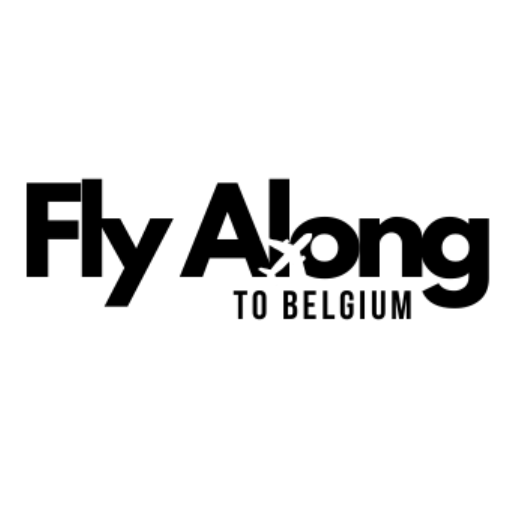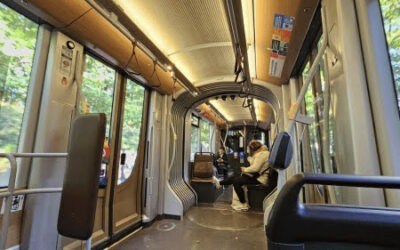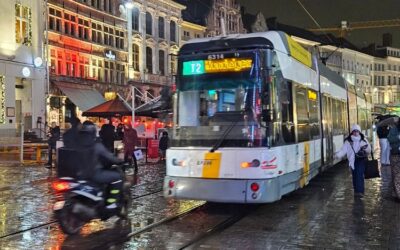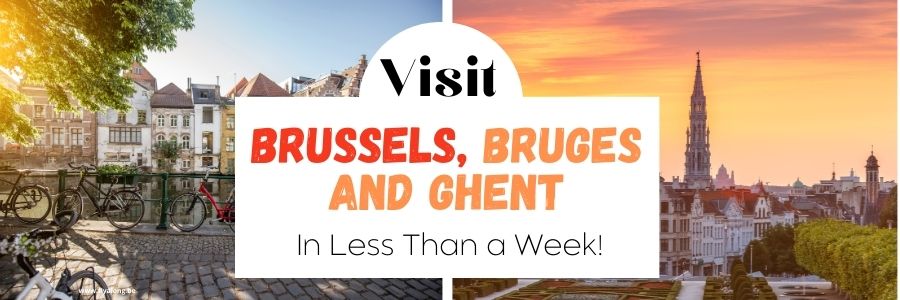Visiting Belgium for the First Time
As a Belgian woman, I know how important it is to have reliable transportation when exploring a new country. On this page, I’ll share local tips to help you navigate trains, trams, and buses like a pro to visit cities like Brussels, Ghent or Bruges. I’ll also answer some of the most common questions travelers ask when visiting Belgium for the first time. Let me help you explore my beautiful country with confidence and ease!
Arriving in Belgium
Major Airports
-
Brussels Zaventem Airport (BRU)
-
Brussels South Charleroi Airport (CRL)
From BRU to Brussels City Center
The easiest way to reach Brussels from the Zaventem airport is by train, which takes about 20 minutes to reach the city center. Taxis, rental cars, and shuttle services are also available, but trains are typically the quickest and most affordable option.
Download the NMBS app for all the train schedules.
From Charleroi Airport to Brussels City Center
Going from Charleroi Airport to Brussels City center is more complicated because it’s a 1-hour drive. Read here how to get there easily.
Public Transportation in Belgium
Trains: NMBS (National Railway Company of Belgium)
Traveling by train is one of the easiest and most efficient ways to explore Belgium. The NMBS offers extensive train routes throughout the country.
You can check schedules, book tickets, and view real-time updates via the official website or mobile app.
Buses: De Lijn (Flemish part) Le Tec (French part)
De Lijn operates the bus and tram network across Flanders, connecting cities, towns, and tourist destinations.
Use their app to plan routes and buy tickets. For the French part when wanting to visit the Ardennes for example or Namur and Liege use Le Tec company.
Travel Documents
Before you head to Belgium, make sure your paperwork is in order. If you’re an EU or Schengen citizen, your national ID card is enough to travel.
Non-EU travelers will need a passport that’s valid for at least three months beyond their stay, and depending on your nationality, you may also need to apply for a Schengen visa (unless your country has a visa waiver).
Travel insurance is highly recommended, not only for peace of mind but also because it’s sometimes required when applying for a visa.
Money & Payments
Belgium uses the euro (€), and while credit and debit cards are widely accepted (especially Visa and MasterCard), it’s a good idea to carry some cash for small cafés, markets, or local shops.
ATMs are easy to find in cities and towns. American Express isn’t accepted everywhere, so don’t rely on it as your only card.
Language Tips
Belgium is a multilingual country with three official languages: Dutch (spoken in Flanders), French (spoken in Wallonia), and German (spoken in a small eastern region).
In Brussels, both Dutch and French are used, but you’ll find that many people speak English, especially in tourist areas. A simple “Bonjour” or “Goedendag” goes a long way in making a good impression.
Culture & Etiquette
Belgians value politeness and a friendly greeting. Tipping isn’t expected since service charges are usually included in bills, but rounding up is appreciated.
Food and drink are a big part of Belgian culture, don’t miss out on trying the local waffles, fries, and, of course, world-famous chocolate and beer. Fun fact: each Belgian beer has its own unique glass, and it’s considered bad form to serve it in the wrong one!
Weather & Packing
Belgian weather can be unpredictable, so bring layers and always pack a raincoat or umbrella.
Winters are damp but generally mild, while summers are warm without being overly hot, average highs are around 20–25°C.
Comfortable shoes are a must if you plan to explore cobblestone streets and historic city centers.
Safety & Health
Belgium is generally very safe, but like in any busy city, keep an eye out for pickpockets in crowded places such as train stations.
Tap water is safe to drink everywhere. If you’re an EU citizen, your European Health Insurance Card (EHIC) will give you access to necessary healthcare, but having extra travel insurance is a smart choice for peace of mind.
Staying Connected
If you’re traveling from the EU, roaming charges no longer apply, so you can use your phone plan as usual.
Visitors from outside the EU may want to pick up a prepaid SIM card from providers like Proximus, Orange, or Base. Free Wi-Fi is common in hotels, cafés, and public areas, so staying connected is easy.
Transportation Tips
Public transportation in Brussels
Brussels is the capital of Belgium — and also the capital of Europe. It’s home to waffles, chocolate, comic books, and the European Union. The city is busy, but getting around is easy. You don’t need a car. In fact, it’s better without one. Brussels has a good public...
Public Transportation in Ghent
Ghent is a beautiful city in Belgium. It’s known for its canals, castles, and student life. Many people visit Ghent to explore its history and culture. Getting around the city is simple. You don’t need a car. Ghent has good public transportation. It’s cheap, fast, and...
How to Travel Easily from Brussels to Ghent?
Belgium is a small country with excellent transportation options. Traveling from Brussels to Ghent is easy and offers great opportunities to explore. Here is a clear guide for tourists. Disclosure: This blog post has affiliate links. Clicking them is free for you and...
Questions you might ask before visiting Belgium
Do Belgians speak English?
Yes, most Belgians in the Flemish-speaking regions and Brussels are fluent in English, the situation can be a bit different in the French-speaking areas. English is less commonly spoken here, but the younger generation is rapidly learning it, making it increasingly easier to communicate in English across the country.
Is Belgium expensive?
Depending on where you’re traveling from, Belgium can be quite expensive, especially when it comes to dining out. Even as Belgians, we often find restaurant prices high, and eating out is increasingly seen as a luxury.
Hotels can also be pricey, but fortunately, activities are generally affordable. One local tradition you’ll enjoy is ‘l’apéro’, a casual drink before dinner. Alcohol, in general, isn’t too expensive.
Can I enter Belgium without a visa?
For international travelers, Belgium is part of the Schengen Area, allowing visitors to stay for up to 90 days without a visa.
Be sure that your passport is valid for at least six months beyond your planned entry date.
Can I use my credit card in Belgium?
Belgium uses the Euro (€). Credit cards are widely accepted you will have no problems. Some smaller places in The Ardennes may prefer cash but in the big cities you will not need it. ATMs are easy to find.
What time zone will I be in?
Belgium operates on Central European Time (CET), which is for example six hours ahead of New York.
What weather should I expect?
Belgium has a temperate climate with frequent rain, so a raincoat or umbrella is a must year-round.
Summers are mild, while winters can be very cold, especially in January and February. Dress in layers to stay comfortable because it’s definitely not the tropics.
What to Visit in Brussels?
Discover Brussels, Bruges, and Ghent in Less than a week!
Discover how to visit Brussels, Bruges, and Ghent in just 3 – 5 days with this easy-to-follow guide. Includes:
⭐️Day-by-day itineraries for Brussels, Bruges, and Ghent (perfect for 3-5 days).
⭐️ Insider tips and local advice to explore like a pro.
⭐️ Must-know transport and food recommendations to save time and enjoy the best of Belgium.







